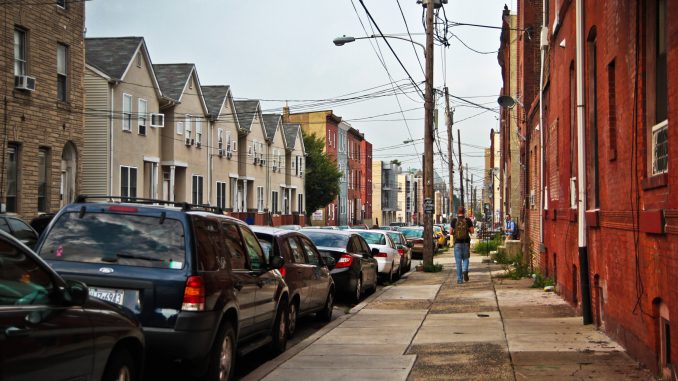
More than a year after it was commissioned, a task force charged with evaluating student-community relations is set to release its findings within the next week.
The Community and Student Off Campus Issues and Concerns Task Force was formed in September 2011 by then-President Ann Weaver Hart and tasked with analyzing and developing recommendations for a “comprehensive approach to addressing and changing destructive, unsafe, and uncivil student behaviors in the neighborhood communities surrounding” Main Campus, according to a copy of the report provided to The Temple News yesterday, Oct. 8.
Acting President Richard Englert said the report would be published online within the next week.
The report, dated Feb. 7, lays out five recommendation areas and 22 strategies to help “Temple move forward with efficacy and unity to promote a strong and healthy campus and community.”
The report includes a proposed “annual budget” of $551,020 that would be used for new resources — including salaries for new positions, employee benefits and program budgets. Dean of Students Stephanie Ives, who chaired the task force, said the total amount does not necessarily need to be allocated in one year.
Of the recommendations, two were made before the final report was submitted and have been approved. The first was a recommendation that requires students to update their local addresses twice a year, which will be implemented through a question about a living address when logging into TUportal. Ives said the process of asking students to update their addresses will begin on tomorrow, Oct. 10.
The other recommendation already approved was the creation of a public affairs specialist position within University Communications who would develop plans focusing on positive interactions between students and the community, according to the report. Assistant Vice President of University Communications Ray Betzner said the position was created with the elimination of a staff writer’s position and Jazmyn Burton was named to the post.
Ives said that approximately 10 recommendations are in the discussion phase at the moment.
The report’s first recommendation area centered on a revision of the student conduct process that includes a rubric for behavioral violations and streamlined process that is resolved within three to five days of the referral of the incident. Ives said the expedited process would lead to a better connection between students’ consequences and actions.
“Our student conduct process is extraordinarily efficient, but we were looking for ways to make it even more so,” Ives said. “We will adjudicate the process. We’ll have the referral in on Monday, the student in by Wednesday and the entire process can be done by Friday.”
The task force also recommended the creation of a community and student mediation program. In addition, the report outlined a recommendation expanding the Good Neighbor Policy and forming a campaign with tangible programs.
“We felt with existing resources we could go ahead and create a very well-known, understood campaign to discuss what it means to be a good neighbor,” Ives said.
Other recommendations involved student interaction with the community including the “Blockster” program which would partner Temple student block leaders with block captains in the community.
The report also state support for the creation of the North Central Neighborhood Improvement District, introduced by City Council President Darrell Clarke. The NCNID was met with conflicting emotions from the community in the spring. Council held public hearings on the bill in March and May, but the NCNID never came to a vote.
The creation of a long-term agreement with Philadelphia police and the state Liquor Control Enforcement to supplement Temple Police off-campus was also supported by the task force, which said Liquor Control Enforcement “utilizes specific strategies to reduce the negative impact of underage drinking on local communities.”
The task force recommended forming a Campus Community Committee which would consist of administrators, community members and students, who would meet on a regular basis to discuss issues and build relationships with the community, a point that Englert emphasized during an interview yesterday.
“The real issue isn’t the report. It’s, ‘What’s the best relationship between Temple University and its students and its immediate neighborhoods?’” Englert said.
Many issues in the report would be left up to incoming President Neil Theobald when he takes office January 2013, including a recommendation that all first-year students be required to live in university-managed, on-campus residential facilities beginning in 2013, unless the student can prove he or she is living with a family member. Englert said an issue like this wouldn’t be able to happen overnight.
“That’s a major policy direction that affects all new students. It may affect some peoples’ wants or interests in coming to Temple,” Englert said. “That’s a policy decision that has to be made and that’s most appropriately left to a new president.”
While many of the recommendations would be left to Theobald, Englert said the to-be 10th president has been briefed and will be prepared to handle the issues when he takes office.
“I’ve talked to him about it a couple of times and, when he comes on Jan. 1, he will be fully aware of the task force,” Englert said.
The 14-person committee, made up of nine university representatives, a realtor, a resident and two students, as well as five consultants, met as a whole six times between October and December 2011. Subcommittees met regularly to discuss program and service development, outreach, communications, academic inquiry and disciplinary interface. The task force then reported its findings to Hart in January.
Englert said that because the university was in a transitional phase, Hart thought it would be reasonable to hold implementation of the report until a new president took office.
Sean Carlin can be reached at sean.carlin@temple.edu or on Twitter @SeanCarlin84.



Be the first to comment